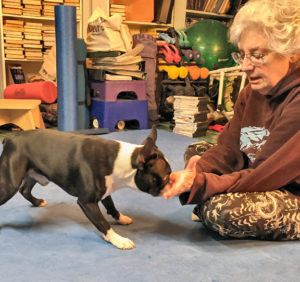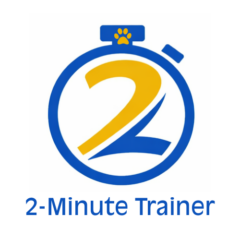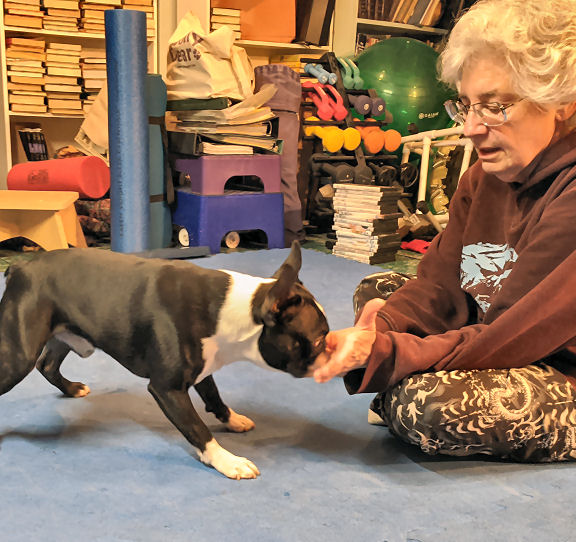What are your dog expectations? What do you want from them? And how fast do you think you can get it?
A woman who’s taken our classes contacted us a couple weeks ago. She and her husband adopted a two (?) year old dog from a nearby shelter and want to start training the new guy.
So we got them started on the basics: teaching him his name. Playing “Touch!” Puppy Push-ups for vocabulary. Some Pattern Walking. And, after five days, she called for more help with his issues. Clark apparently jumps on people, doesn’t come when called, and fixates on squirrels and rabbits on walks. And “nothing” they try can get his attention.
Expecting too much too soon
They can’t get his attention because, at this point, “nothing” is what this dog knows. For his entire life, prior to two weeks ago, Clark was never taught to think. Never taught to make good decisions. Never had any expectations laid upon him.
Had they gone to a force trainer, it’s quite possible that Clark would be “behaving” better. He would know that if he doesn’t comply with commands, he will be punished. He wouldn’t be more polite and attentive because he’s learned that being “good” is right. He’d obey because he wants to avoid pain.

There’s no question that positive reinforcement training and training games take longer. It takes time to communicate to dogs that their best interest and yours coincide. Dogs learn through the timing and placement of rewards. Together, you have to build the foundation of trust and partnership.
Expect more
The benefits of training games are also more long-lasting. Once the dog catches on that playing learning games is fun, they’ll want to do it more and more. When your dog is on board with the program, they’ll come find you when it’s time to play.
When that happens, your expectations for your dog can soar. At this point, when we make up or introduce a new training game to our dogs, most of the time they pick it up in just a few training sessions. When they don’t, there’s something wrong with the game.
Our biggest “fail” so far was trying to train Torque, Hope’s French Bulldog, to distinguish between colors. We gave it a fair shot, over a dozen or more sessions, but he just wasn’t getting it. We still don’t know whether it’s because dogs can’t see the colors we were using, or if it was a flaw in the game.
Got it!
On the other hand, one of the most recent “wins” was getting our dogs to do Puppy Push-ups when we were behind or over them. They easily adjusted to the simple change. The parameters of the game were familiar. So their knowledge and experience led to success.
Letting your dog think and learn at their pace requires you to use patience. Sometimes it takes every ounce you have. We introduced a thinking game to our Rally students this week and two of the dogs weren’t able to get it. One because she’s a rescue with a long history of trauma. The other because her owner has told her what to do every moment of her life. Both of these dogs are new to thinking, trying, and making good decisions. We expect it will take a little time. But both will get it, sooner or later. And the owners’ dog expectations can grow – a little at a time.

